Marine veteran diagnosed with dementia visits Vietnam memorial with family
U.S. Marine veteran Ronald Dean travels from California to Washington, D.C., to honor his fallen friends.
Caregiver burnout is a significant concern, say health experts — and some states are now stepping up to offer online support to family members for free.
The New York State Office for the Aging (NYSOFA) and the Association on Aging in New York (AgingNY) recently announced a partnership with Trualta, a company that provides web-based educational skills training and a support platform.
The partnership supports those who are caring for their aging family members or friends at home.
The loved ones may suffer from conditions ranging from Alzheimer’s and dementia to developmental disabilities, stroke recovery, diabetes and more.
COGNITIVE DECLINE CAN BE AVOIDED WITH SIMPLE, EVERYDAY EXERCISES, NEW STUDY SUGGESTS
The platform also addresses caregiver wellness — and how to help a person transition from the hospital to home, a spokesperson for Trualta told Fox News Digital.
The initiative comes at no cost to residents of New York State who are providing unpaid care to a family member or friend, according to a news release from the New York State Office of the Aging.
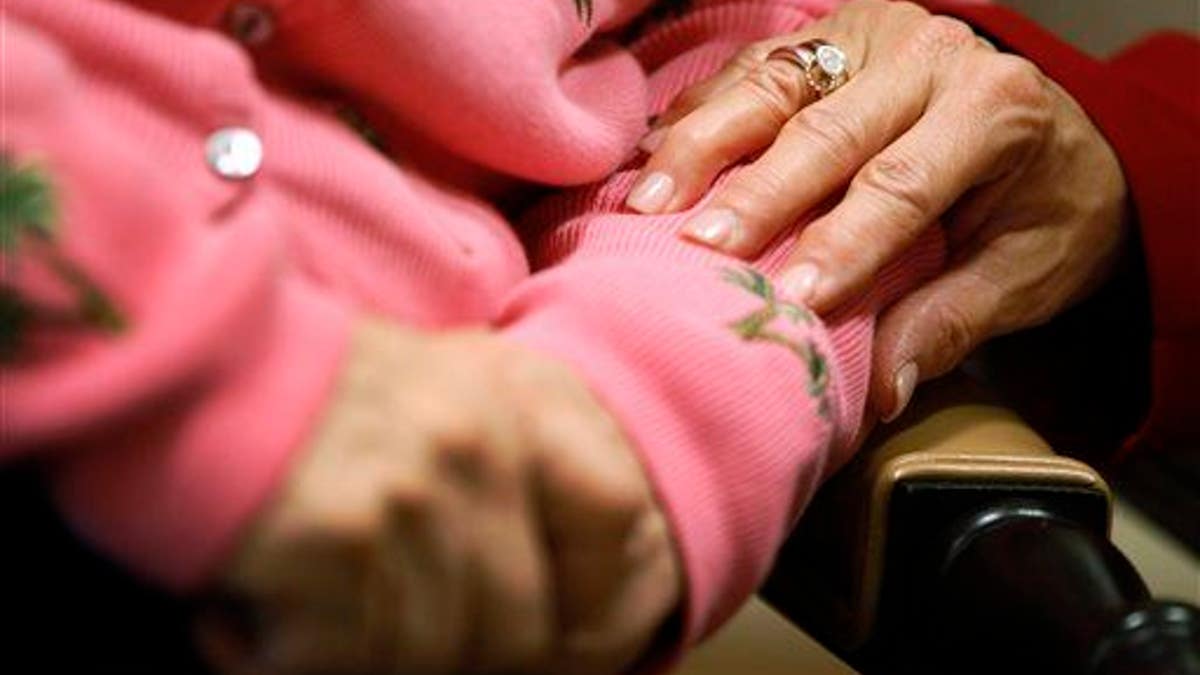
A person with Alzheimer's receives comfort from someone who cares. The states of New York, North Carolina, Washington, Minnesota, Wisconsin and New Hampshire are now offering online advice and tips to residents who are caring for a loved one or friend with dementia. (AP Photo/Charles Dharapak, File)
New York joins five other states that are offering no-cost virtual help to individuals who are providing unpaid care to family members or friends in those states.
North Carolina, Washington, Minnesota, Wisconsin and New Hampshire currently offer the online platform statewide to residents free of charge.
FOOD BANKS ARE ALREADY WORRIED ABOUT FALL, WINTER — SOME FAMILIES MAY NOT HAVE TURKEYS THIS YEAR
The Trualta program is also available free of charge in certain parts of 27 other states thanks to counties, state providers and community-based organizations, a spokesperson for the company told Fox News Digital.
There are efforts underway to make it available across all 50 states.
‘A big flip’
Caregiver Leda Rosenthal told Fox News Digital that she was 19 years old when her mother was diagnosed with early onset Alzheimer’s disease at age 57.
"It was a big flip from being the one who was being taken care of to being the one who is taking care of my mom," said Rosenthal.
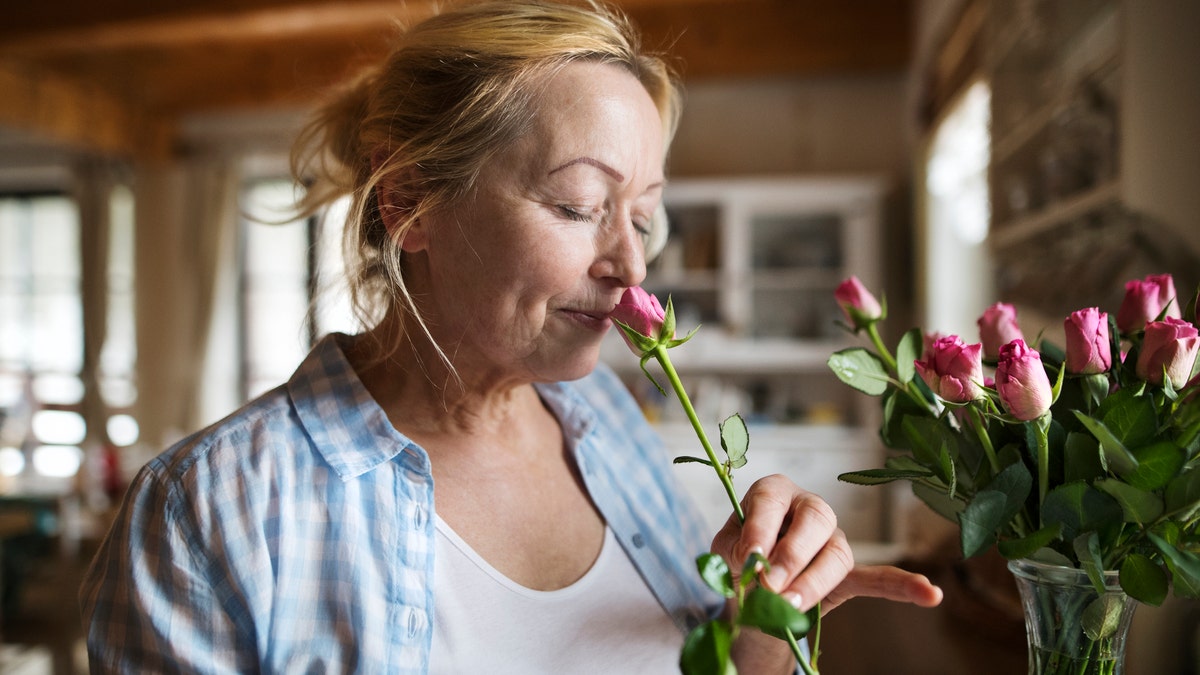
In New York, one woman's mom was diagnosed with early-onset Alzheimer's at age 57. The caregiver daughter described her experiences to Fox News Digital, including how her mom "would wander" and leave the stove on accidentally. (iStock)
She described the difficult journey a person faces when taking on the caregiver role of a family member.
"Different challenges started popping up," she said.
She noted that her mom "would wander. We have two big dogs, so she would get lost with them in the neighborhood."
She also said her mom would leave the stove on by accident.
"Caregivers already feel socially isolated — and when the pandemic hit, this just made it hard to connect with others."
Rosenthal told Fox News Digital the most taxing situation for her was the behavioral challenges in her mother that she experienced.
"My mom’s agitation, her anxiety — she started to have hallucinations as well," said Rosenthal.
MASSACHUSETTS MOM IS HONORED BY HER GROWN KIDS IN PICTURE-PERFECT PORTRAITS
She said she searched the web for hours at a time to try to find ways of successfully communicating with her mom.
"You get lots of misinformation online," she told Fox Digital News.
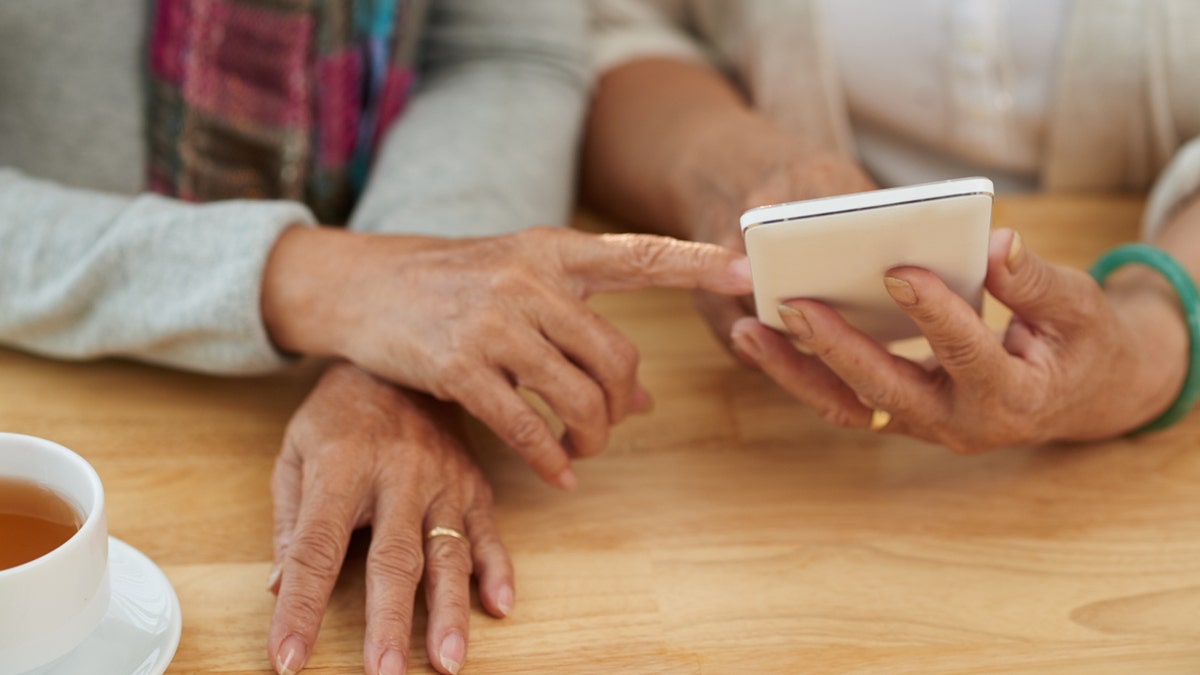
There is also social isolation for those who are at home and suffering from dementia or Alzheimer's. (iStock)
Aside from experiencing the behavioral issues of their loved ones, Rosenthal said there is the social isolation aspect of the work they do.
"Caregivers already feel socially isolated — and when the pandemic hit, this just made it hard to connect with others," she said.
Rosenthal decided to use her technology skills and personal situation to create a career path to help those who are aging remain at home, while also supporting those who care for them.
Caregivers can type in the scenario or symptom they're dealing with — and a selection of skills training information is offered.
She eventually met with Jonathan Davis, the CEO of Trualta, which is headquartered in St. Joseph, Missouri — and became the director of growth for the company.
Rosenthal described the website as offering a menu of options.
Instead of selecting a movie genre from a menu of movies, for example, caregivers can type in a scenario or symptom they might be dealing with — and a selection of skills training information will be offered.

Caregivers for family or friends with cognitive issues often need to learn coping skills to deal with the challenges they face. (iStock)
You might say, for example, "that your loved one is wandering," she said.
Then, you might be provided with "steps to reduce wandering, broken up by different tasks," said Rosenthal in describing the specific tips offered.
While caregivers may not need to understand the science behind their loved one’s disease, they do need to learn coping skills in dealing with the challenges the disease creates for the person they're taking care of, said Rosenthal.
"What’s important as a caregiver is how you can respond to create a better experience for your loved one and for yourself to reduce your burnout."
Caregivers, she said, "don't know what skills go into agitation — but they know the problem that they are having."
Rosenthal said that "what’s important as a caregiver is how you can respond to create a better experience for your loved one and for yourself to reduce your burnout."
CAREGIVER FATIGUE IN AMERICA IS RISING AT AN UNPRECEDENTED RATE: REPORTS
Joel Salinas, assistant professor of neurology in the Department of Neurology at NYU Grossman School of Medicine, told Fox News Digital, "A diagnosis of dementia is not just a diagnosis for the patient — it’s also a diagnosis for the patient’s family and whoever else will be providing informal caregiving."
He said as well, "Caregiving can add a significant stress on the ability to participate in work and self-care — and there is also a great deal of uncertainty about so many aspects of care and what to expect. There are serious health and economic impacts from this kind of caregiving, so seeking support early and consistently can be critical."
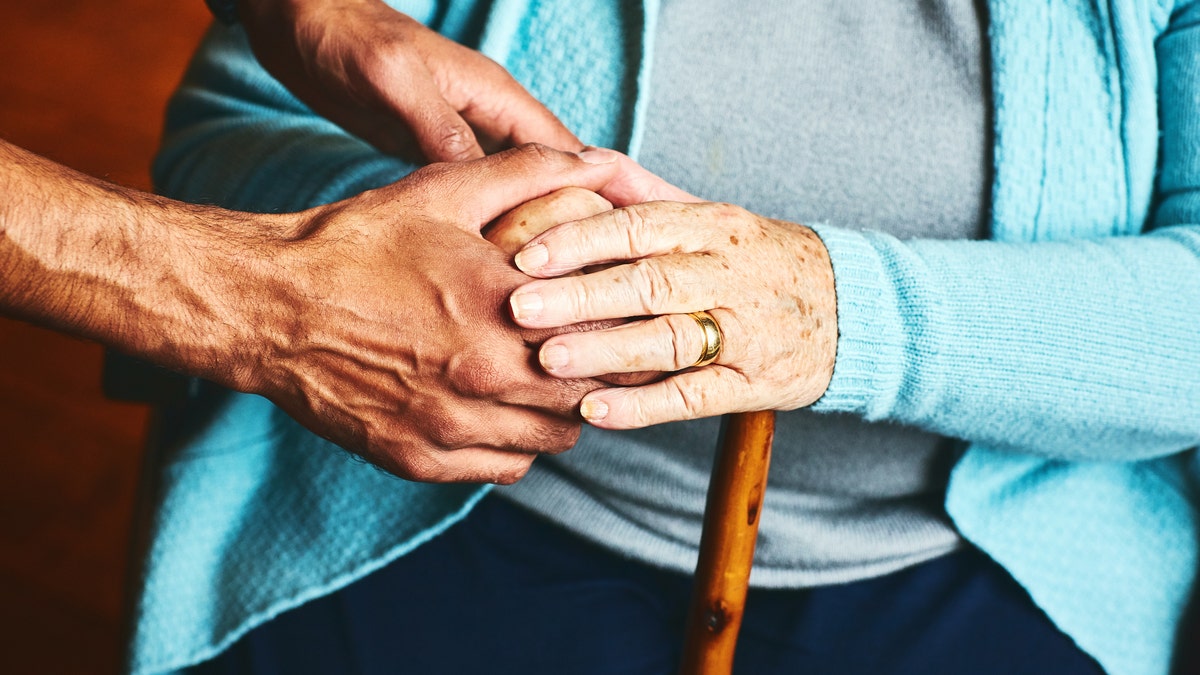
Online interventions can "help informal caregivers access valuable techniques they can apply in their daily life." (iStock)
A Trualta spokesperson said the e-platform provides adult learners with the ability to scan and find answers quickly from evidence-based sourcing.
A study published in 2021 in the Journal of Alzheimer’s Disease Reports found that 84.4% of participants who accessed the Trualta platform reported using skills they learned via the online platform.
The study also found that skills pertaining to behavioral management were reportedly used the most (60%) — while over half the caregivers reported allocating more time for self-care.
There are reportedly more than four million caregivers in New York State who provide nearly 2.7 billion hours of unpaid care.
Caregiver burden scores also appeared to decrease after people used Trualta for 30 days, according to the study.
The study's authors said in the peer-reviewed published report, "This highlights the potential for online interventions to help informal caregivers access valuable techniques they can apply in their daily life."
Rosenthal, commenting on that study, told Fox News Digital that "when the caregivers are offered access to Trualta, in just 30 days we see the following: a 12% decrease in behavioral symptom severity, a 10% decrease in distress and a 30% improvement in caregiver fulfillment."
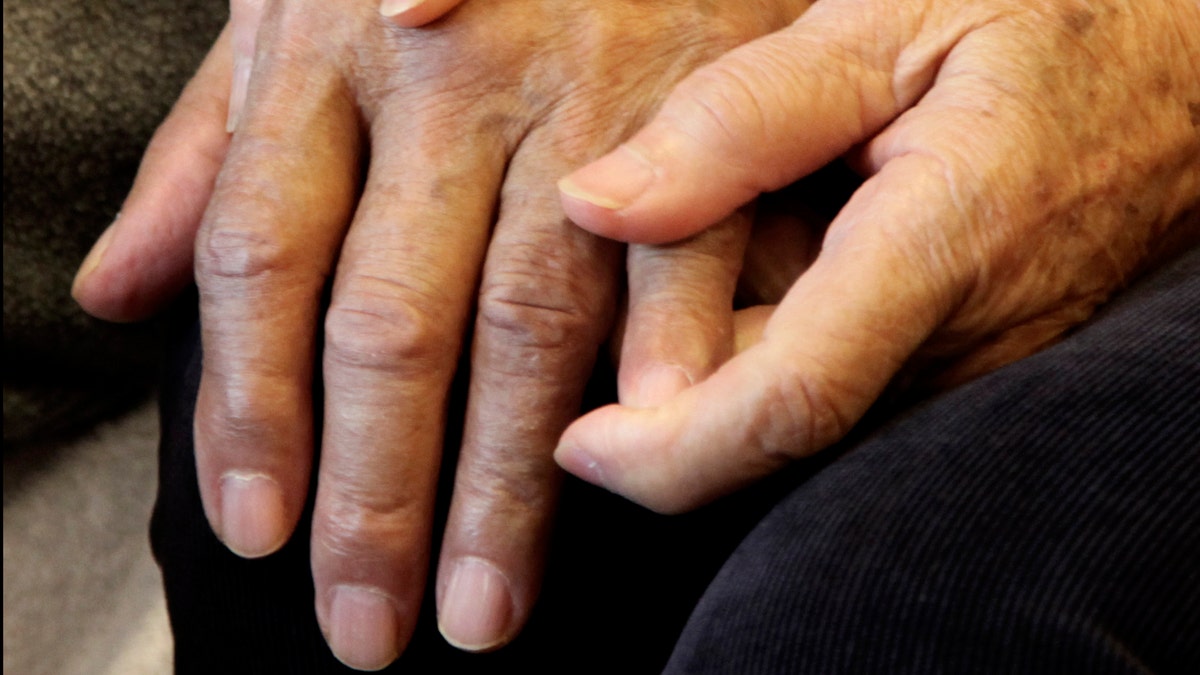
Caregivers for loved ones across America can "reduce stress, build confidence and feel less alone." (Ben Margot/AP Photo)
A previous study also showed that when a family member is trained in caring for a loved one at home, that training may lead to reduced hospitalizations for the loved one.
Rosenthal said that when a family member receives training in prevention and in recognizing different signs and symptoms of conditions, for example — such as urinary tract infections — earlier treatment can be given.
EATING HIGH-PROCESSED FOODS COULD LEAD TO A FASTER RATE OF COGNITIVE DECLINE: STUDY
This can help prevent a more severe case, such as sepsis, which would require hospitalization.
There are reportedly more than four million caregivers in New York State who provide nearly 2.7 billion hours of unpaid care.
During the COVID-19 pandemic, most caregivers reported issues with burnout.
CLICK HERE TO SIGN UP FOR OUR LIFESTYLE NEWSLETTER
Sixty-one percent of those caregivers worry about caring for a loved one, the news release said, while 70 percent reported experiencing at least one mental health symptom during the pandemic.
Jonathan Davis, CEO of Trualta, said in a statement to Fox News Digital that many caregivers have no prior experience and don’t know where to turn for help.
CLICK HERE TO GET THE FOX NEWS APP
Davis also said, "Trualta’s goal is to empower family caregivers by providing them with valuable training and support resources that they can access from the comfort of home. Our e-learning platform is proven to help caregivers reduce stress, build confidence and feel less alone."









































